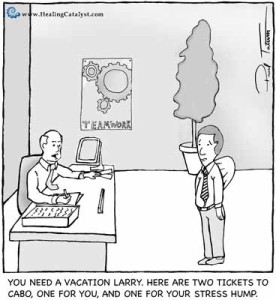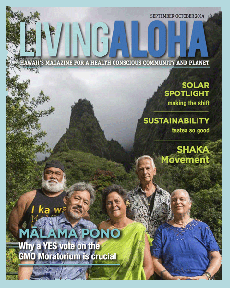Personal Sustainability is important, too
Sustainability is a hot topic, and rightly so. However it is not a new and radical concept; sustainability simply means that we are supposed to replace what we take and align ourselves with Nature’s built-in ability to maintain balance. We also need to extend our reflections about sustaining our planetary ecosystem to our personal ecosystems. Personal sustainability means keeping ourselves in healthy balance and replenishing our life force so we can continue to do our good work and play well throughout our lives.
Our socialized directive to constantly buy more, do more, and eat more doesn’t work with our bodies (either.) You can’t just get a new one that is faster, shiner, and with more features.[1] Your body already has impeccable built-in self-repair features (healing) and a feedback system for letting you know what it needs at any moment. You have to let it be part of your management team and give it the right conditions. In other words, lead with your heart and guts as often as with your mind.

In our busy, over-full lives, it can be hard to find anything to eliminate as we look for ways to slow down, consume and do less. But eliminate and balance we must. Sometimes the hard choice is to not help that organization or not put in that overtime because we need to spend time with our kids. Our kids and loved ones want us to take care of ourselves. They want us to model what good self-care looks like so they can do it, too. Filing everyone else’s tank without replenishing our own is not sustainable. As my favorite Buddhist proverb says, “The mother of a starving family feeds herself first.”
A Big-Picture Perspective on Health is Sustainable
Bio-diversity is just as critical for us as it is for farming and bees and plants. Eating a variety of clean foods according to the seasons keeps you in touch with the ebb and flow of natural availability. Take time to cook from scratch. Vary your exercise routine. It may seem more efficient to exercising exclusively on a treadmill, for example, but that overtrains certain muscles at the expense of others. For the long-haul, you want to mix it up to use more muscles and in different ways. Combine hiking, surfing, running, or paddling, with non-aerobic exercise like yoga or qi gong for a more-complete exercise routine.
As you look at your bio-footprint, also ask yourself the following questions:
- Does a typical week include time for adequate Exercise? Rest? Sleep? Time with loved ones?
- Do I put myself at the bottom of the list and care for everyone else first?
- Am I replenishing the energy I expend by spending time in nature and eating good food?
- Do I need a change of perspective?
- Do I see the big picture of my Life? Health? Relationships?
- Do I pay attention to my consumption and how the things I use are made?
Pay attention to the “no”s and see where you can make small changes. And finally, “What adjustments do I need to make next week to balance myself better?” One step at a time. Moving from overwork and over-consumption simply requires an attitude adjustment to where we see less as desirable because it is generous, appropriate, and ultimately, feels better. 
[1] Unless you call this “death.”
*This article appeared in the Sept/Oct 2014 issue of Living Aloha magazine.


